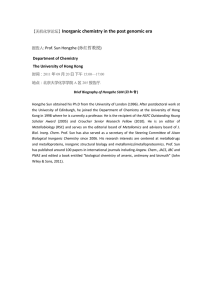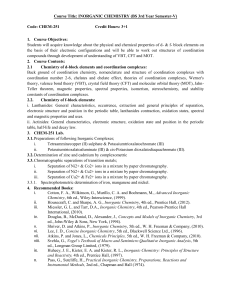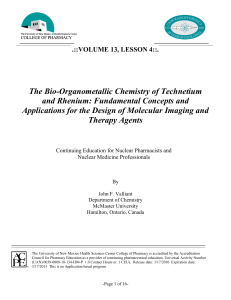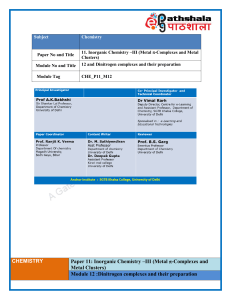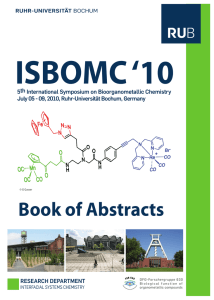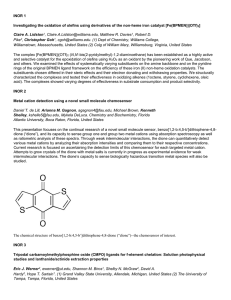Inorganic Chemistry Spring 2009 Syllabus
advertisement
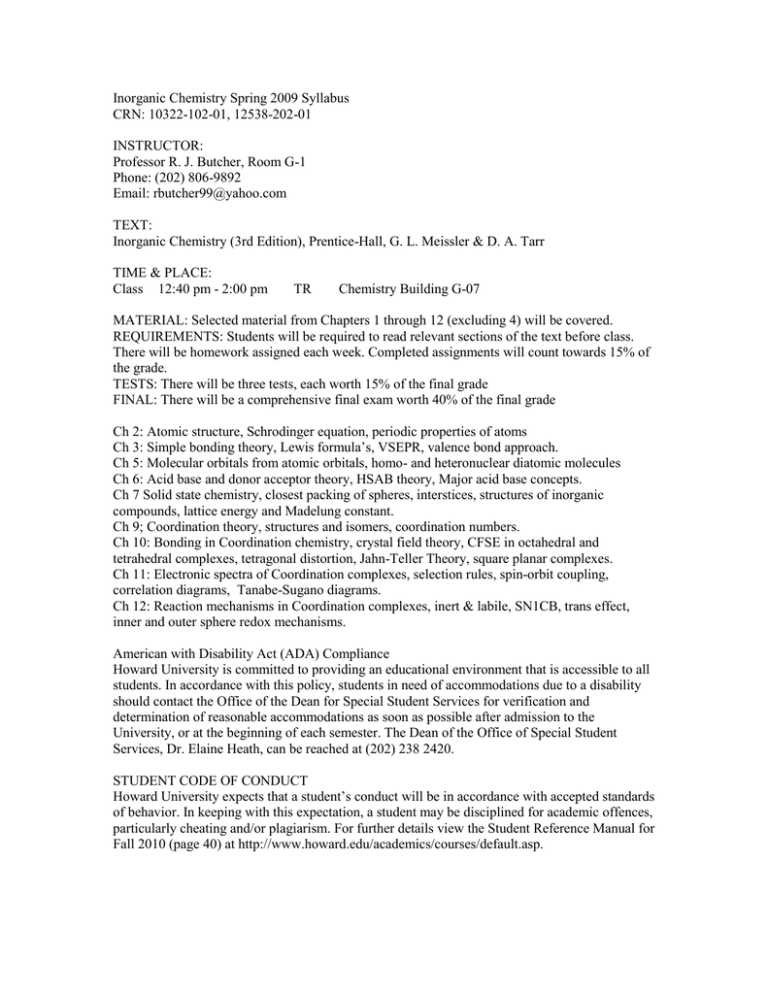
Inorganic Chemistry Spring 2009 Syllabus CRN: 10322-102-01, 12538-202-01 INSTRUCTOR: Professor R. J. Butcher, Room G-1 Phone: (202) 806-9892 Email: rbutcher99@yahoo.com TEXT: Inorganic Chemistry (3rd Edition), Prentice-Hall, G. L. Meissler & D. A. Tarr TIME & PLACE: Class 12:40 pm - 2:00 pm TR Chemistry Building G-07 MATERIAL: Selected material from Chapters 1 through 12 (excluding 4) will be covered. REQUIREMENTS: Students will be required to read relevant sections of the text before class. There will be homework assigned each week. Completed assignments will count towards 15% of the grade. TESTS: There will be three tests, each worth 15% of the final grade FINAL: There will be a comprehensive final exam worth 40% of the final grade Ch 2: Atomic structure, Schrodinger equation, periodic properties of atoms Ch 3: Simple bonding theory, Lewis formula’s, VSEPR, valence bond approach. Ch 5: Molecular orbitals from atomic orbitals, homo- and heteronuclear diatomic molecules Ch 6: Acid base and donor acceptor theory, HSAB theory, Major acid base concepts. Ch 7 Solid state chemistry, closest packing of spheres, interstices, structures of inorganic compounds, lattice energy and Madelung constant. Ch 9; Coordination theory, structures and isomers, coordination numbers. Ch 10: Bonding in Coordination chemistry, crystal field theory, CFSE in octahedral and tetrahedral complexes, tetragonal distortion, Jahn-Teller Theory, square planar complexes. Ch 11: Electronic spectra of Coordination complexes, selection rules, spin-orbit coupling, correlation diagrams, Tanabe-Sugano diagrams. Ch 12: Reaction mechanisms in Coordination complexes, inert & labile, SN1CB, trans effect, inner and outer sphere redox mechanisms. American with Disability Act (ADA) Compliance Howard University is committed to providing an educational environment that is accessible to all students. In accordance with this policy, students in need of accommodations due to a disability should contact the Office of the Dean for Special Student Services for verification and determination of reasonable accommodations as soon as possible after admission to the University, or at the beginning of each semester. The Dean of the Office of Special Student Services, Dr. Elaine Heath, can be reached at (202) 238 2420. STUDENT CODE OF CONDUCT Howard University expects that a student’s conduct will be in accordance with accepted standards of behavior. In keeping with this expectation, a student may be disciplined for academic offences, particularly cheating and/or plagiarism. For further details view the Student Reference Manual for Fall 2010 (page 40) at http://www.howard.edu/academics/courses/default.asp.


